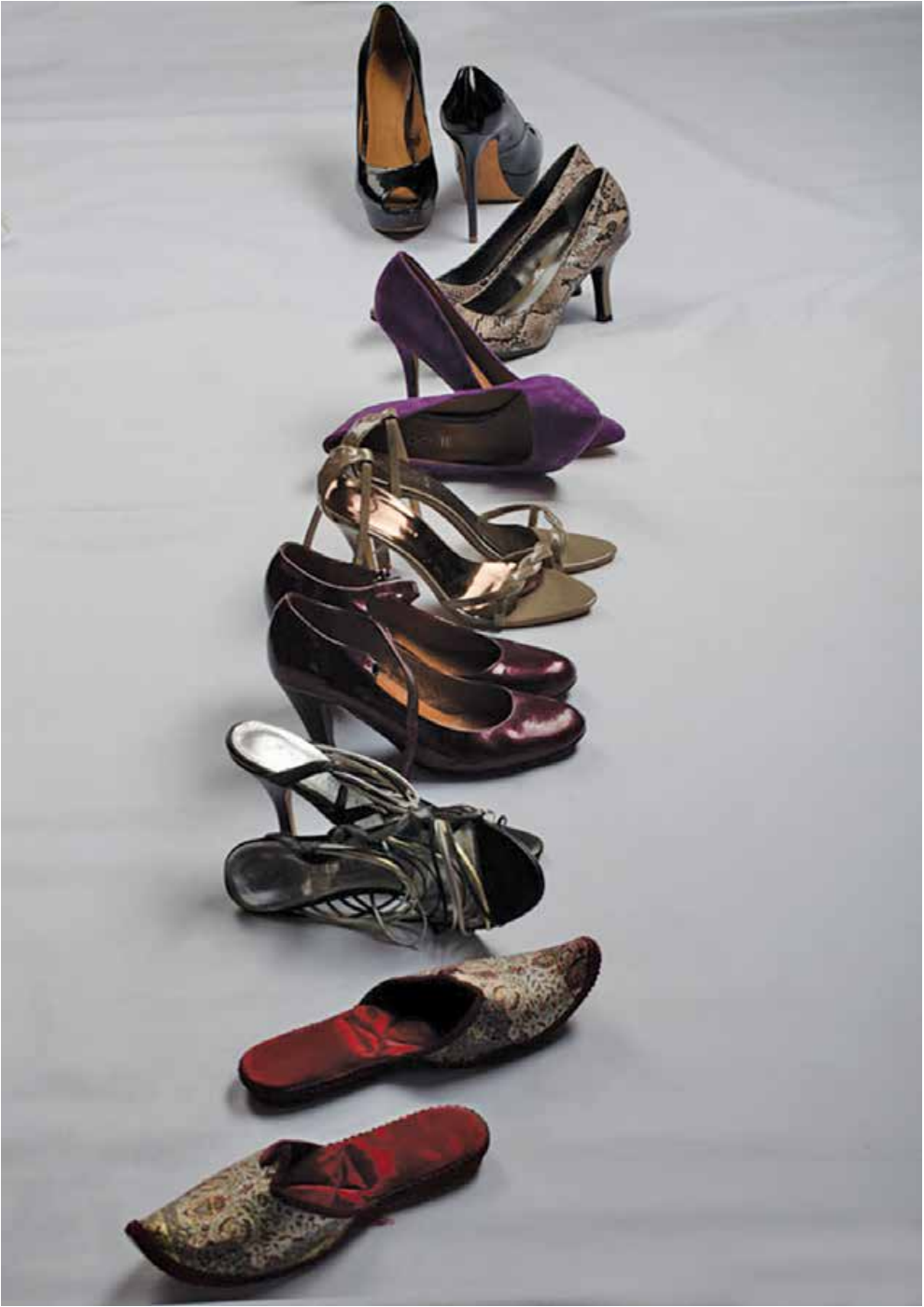

Giorgio Guglielmino
Prima donna is an Italian word which literally means ‘first lady’ and was originally used to identify the main female character in an opera play. It’s use as a title for an exhibition, therefore, is an immediate reference to theatre, the stage and the set. The connection is strikingly evident looking at the paintings displayed at the Bengal Art Lounge – there is a small army of female characters staring out from the paintings at the ‘viewers’. The overall setting clearly has a theatrical effect. In this mute play, which is staged in the gallery, there is a sort of conflict, or almost a confusion of roles. Which side represents the audience and which one the actors, in this play?
I like to think that there is a complete reversal of roles in this exhibition and that the figures in the paintings are the audience and the viewers are the exhibited works. What will the comments be from the characters in the paintings after the gallery closes at night?
– Oh, did you see that pretentious art critic?
– The one with the horrible tie?
– Yes, that one. Here ally looked like a fool trying to explain me to the lady he wanted to impress!
– Yes, pathetic! But did you see the young student couple? They were so cute!
– Yes, so nice! He looked for every occasion to touch her hand.
– And the high society lady? The one who thinks she is royalty?
Let’s try to see the exhibition with this spirit, as if we are the watched ones. As if the relation between viewer and works is different. What do we look like when we look at art?
Remaining in the field of theatre, Peter Handke’s piece titled ‘Offending the Public’ came to my mind, because of the twist in who’s who and how character roles are defined. The characters in Preema’s paintings are not offensive, they are inquisitive and most of all they are more than just characters–they are immanent women. Dressed in black in some of the paintings or barely dressed in the delicate drawings, they are first of all women. Women that are most of all identified with their eyes. They are eyes that watch closely and that do not lower their gaze. And this is not a small detail.

This installation is entitled as ‘Fertility Partition’ with transparent plastic paper and egg shells which were hanging from the wall to the ground supporting the video. To me, the perspective offered by feminism is in terms of this emphasis on the body, on woman’s body as a particular ‘dilemma’, both as the means of productivity and as an object of beauty. I symbolized a vocabulary, which could both, express and conceal the reality of the body. Another work of mine–‘Marry My Egg’–is presented here as an interrogation. It is a satirical enactment of a part of the woman’s body. I strive to explore the relationship between the concepts of beauty largely determined by a male-dominated sexuality and the sense of contemporaneousness claimed to be within it. I, myself as a woman artist, am trying to make an effort to redefine this sexuality in the representation of woman’s body as a symbol of beauty, celebration and fertility object. My attempts are to rediscover and reinterpret this representation, which was defined by the ‘other’, dominant, but non-committal part of the social wave.

